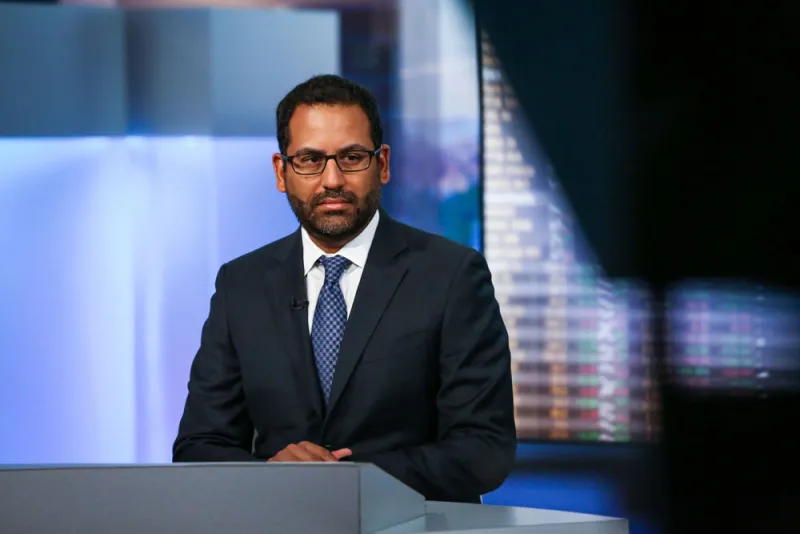Ashish Shah, a fixed-income leader at Goldman Sachs Group, is keeping a positive view of markets as social unrest erupts across the U.S.
The intensifying protests over inequality may change the U.S. path for reopening its economy because social distancing measures are difficult to manage in the crowds, according to Shah. But they don’t derail his longer term view of markets as a debt investor, he said Tuesday in a phone interview.
Shah sees the combination of Federal Reserve policies and government efforts to get the economy “back up and started” amid the coronavirus crisis as the primary drivers in markets.
“From a bigger picture, longer-term perspective, those are the two most important things that investors need to focus on,” said Shah. “Taking the long-term view is absolutely critical.”
Still, Shah expressed personal dismay at the systemic racism, which, along with the the death of George Floyd, sparked the widespread protests.
“There are moments in time when you need to see catalysts for change,” he said. “I’m hoping this is one of those.”
[II Deep Dive: BlackRock Rakes in Big Portion of Fed’s ETF Investments]
As co-CIO of Goldman Sachs Asset Management’s fixed-income group, Shah is looking at markets over the next year or two. He said his positive view is underpinned by the Fed’s massive intervention.
The central bank’s debt-buying programs are helping companies access capital to get through this “difficult time” of lower earnings in the pandemic, Shah said. The resulting positive sentiment in markets is serving as a bridge to help companies make it through to the other side of this pandemic, he explained.
Shah sees the Fed’s buying of Treasuries and agency mortgages as “far greater as a positive for corporate credit markets” than its purchase of exchange-traded funds that buy companies’ bonds. That’s because the resulting low yields of Treasuries make asset classes like investment-grade and high-yield bonds more attractive to investors.
While some investors may be seeking to buy what the Fed is buying, Shah said, “I would say, you want to actually buy what the Fed has yet to buy.”
The Fed has “barely bought” any investment-grade or high-yield credit or any securitized commercial mortgage-backed securities, he said. Shah added that the Fed has not exhausted its ability to support markets, which he said gave further support to his positive outlook.







